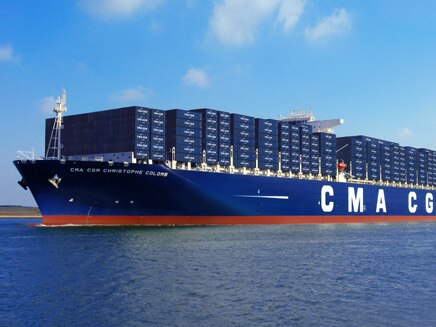
On its way to achieving the 2014 target for carbon reductions in transport, Electrolux is working in partnership with BSR’s Clean Cargo Working Group to find a standardized approach to calculating its carbon impact on the high seas.
Electrolux emits at least as much carbon dioxide through transportation as it does through energy use in all of its operations. That puts a carbon-reduction target for transportation high on its list of priority.
By 2014, Electrolux aims to have reduced its carbon emissions from transporting goods by 15%, compared to emissions levels in 2010. From an environmental perspective, shipping offers the greatest carbon-savings of all long-distance transport modes. But it can do better.
Partnership approach
In 2010, Electrolux entered into partnership with Business for Social Responsibility’s (BSR) Clean Cargo Working Group (CCWG) together with major container shipping lines, shippers and other goods manufacturers. The initiative’s aim is to make ocean transport more energy-efficient and develop standardized methods for reporting carbon emissions.
When it defined its transport target, Electrolux found that one of its greatest challenges to overcome was the lack of common standards and data for reporting emissions. This is particularly relevant in ocean transport. Partnering up The CCWG forum gathers like-minded organizations across the value chain.
What gets measured gets managed
In the CCWG, shipping lines report how much carbon dioxide they emit. This can be assessed accurately from data on the bunker oil their ships have burned. It is then possible to track the emissions to specific containers that have been transported.
The CCWG is working towards establishing this solution as a world standard. Their goal is to create easier access to recent, verifiable data from all shipping lines which will in turn create a benchmark for performance against peers.
Future implications
An additional future benefit will be the ability to share best practice with both shipping lines and other proactive companies.
